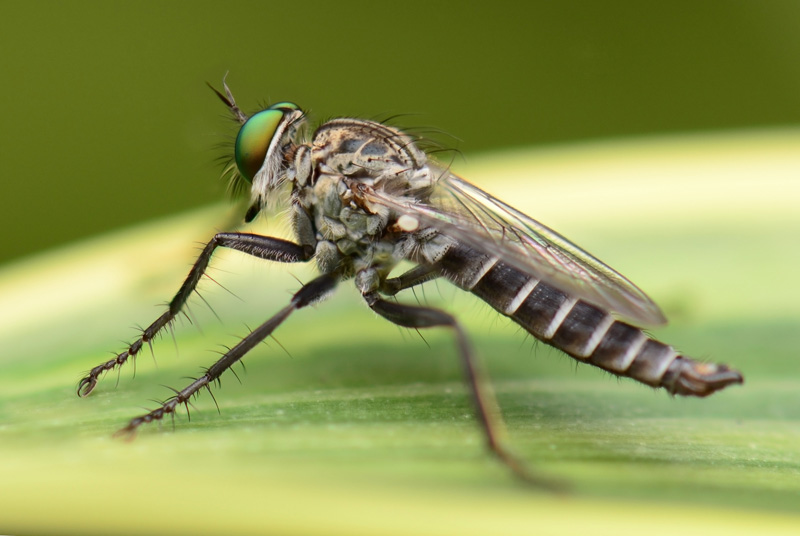Protect Your Horse from a Deadly Disease
by Dave Sauter, DVM

Now is not the time to be complacent about vaccination for West Nile virus (WNV). This virus is the leading cause of arbovirus encephalitis in horses and humans in the United States. In the state of Washington in 2010 and 2011, there were not any documented equine cases of WNV. In 2012, there was 1 case and in 2013 there were 2. The number of cases jumped to 5 in 2014. In 2015 there was a considerable increase in the number of cases in Washington, up to 36, the highest number of equine cases for any state in the country. These were just the reported cases, where testing was actually done to confirm the disease. Likely many more horses went undetected and unreported. None of the 36 confirmed cases were vaccinated.
West Nile virus disease in horses is important. The American Association of Equine Practitioners considers the WNV vaccine one of the core vaccines that all horses should get. The reasoning for including WNV with other core vaccines, such as Tetanus, is because of how serious it is and because of how safe and effective the vaccine is. It is estimated that over 30% of horses that get infected with the virus and develop symptoms will die. Clinical horses that survive the infection have a 40% chance of permanent neurological problems. Of the horses whose symptoms get so severe that they are unable to stand, 80% will die.
West Nile virus was first isolated in Uganda in 1937 and the first recorded epidemic was in 1950, in Israel. It spread throughout Africa, the Middle East, Western Asia, and Europe. In 1999, it somehow made it across the Atlantic Ocean and ended up in New York. It was hoped that it wouldn’t survive the New York winter, but it did. Over the next couple years, it spread across the United States.
The natural hosts, that the virus depends upon for its survival, are birds, both terrestrial and wetland birds. Only in the bird does the virus replicate enough that it can infect a mosquito. Mosquitoes are necessary for the transmission of the virus from birds to other birds and from birds to mammals. Horses and humans seem to be particularly susceptible to WNV. But horses, humans and other mammals are dead end hosts. When the virus infects a mammal, the virus fails to replicate in the bloodstream to a sufficient level to infect a mosquito. Consequently, WNV does not pass from horse to horse, horse to person or from person to person. It doesn’t even pass from horse or human to mosquito. Once in a mammal, the virus doesn’t travel any further. It is either eliminated by the individual mammal’s immune system or dies out when its mammalian host dies. The only way a horse or human can get infected with WNV is from an infected mosquito, a mosquito that got the virus from an infected bird.
For about 24% of infected horses, the only symptom of the virus will be a mild fever. If that is the only symptom, it is highly unlikely that it would occur to any owner or veterinarian to even test for the disease, so these cases will largely go undiagnosed and unreported. Most clinical cases will develop neurological signs such as stumbling, staggering, wobbly gait, and lack of coordination. Some neurological symptoms might resemble lameness. Other neurological symptoms include circling, hind limb weakness, inability to stand, muscle tremors and blindness. Behavioral changes can occur also, such as sleepiness, lethargy, apprehension and hyper-excitability. Whenever a horse exhibits such symptoms, other causes for neurological disease must be considered. Examples include Equine Protozoal Myeloencephalitis (EPM)—sometimes referred to as “possum disease”, Equine Herpes Virus (EHV-1), other arboviruses (EEE, WEE) and even rabies. There is a blood test for WNV.
Treatment for WNV infection is supportive only. Unlike bacterial infections that are treated with antibiotics, as of now, there is no effective anti-viral drug against WNV. We are left with treatments that support and sustain the individual while waiting for the individual’s immune system to mount an attack and destroy the virus. For example, intravenous fluids, anti-inflammatory medication, nutritional support, etc.
With the significant increase in the number of confirmed equine cases of WNV in the state of Washington, now is not the time to be complacent about vaccination. WNV disease is serious with a high mortality rate and a high disability rate among survivors. Affordable, safe and effective vaccines are available. Why risk it.

Dave Sauter is a Minnesota native and graduated from the University of Minnesota in 1987. Following graduation he interned at Rood and Riddle Equine Hospital in Lexington, Kentucky. After this internship, he continued to work exclusively with horses for another five years in Kentucky before moving out West and joining Kulshan Veterinary Hospital in Lynden, WA. He is a member of the AAEP, AVMA and the WSVMA. For more information about Kulshan Veterinary Hospital call 360-354-5095 or email drkulshan@msn.com. www.KulshanVet.com

